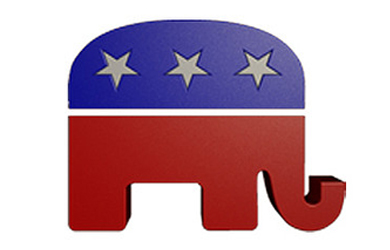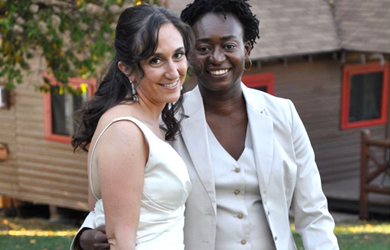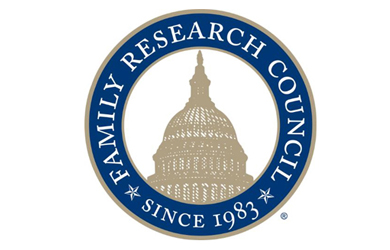The Heritage Foundation’s Ryan Anderson is one of the leading voices of the movement opposed to full legal equality for LGBT people. In the wake of the Supreme Court’s marriage equality ruling, he rushed out a book designed to be a road map for a continuing culture war to resist and overturn marriage equality.
This week, he published another broadside against the LGBT movement — this one a Heritage Foundation “backgrounder” making the case that laws prohibiting discrimination on the basis of sexual orientation and gender identity are unnecessary and “threaten freedom.” Given that Anderson is actively arguing for a generational culture war against marriage equality, it is somewhat difficult to take seriously the concern stated in his new paper that nondiscrimination laws “risk becoming sources of social tension rather than unity.”
Echoing the language of the U.S. Conference of Catholic Bishops, Anderson starts by saying, “All citizens should oppose unjust discrimination,” adding, “but sexual orientation and gender identity (SOGI) laws are not the way to achieve that goal.” His claimed opposition to unjust discrimination may sound promising but, like the bishops, Anderson suggests that moral judgments about homosexual behavior are always legitimate justifications for discrimination.
Government should never penalize people for expressing or acting on their view that marriage is the union of husband and wife, that sexual relations are properly reserved for such a union, or that maleness and femaleness are objective biological realities that people should accept instead of resist. Such views are inherently reasonable, even as people continue to disagree about them.
SOGI laws, he says, “do not protect equality before the law” but “grant special privileges.”
Anderson makes a libertarian anti-regulatory argument, charging that SOGI laws “expand state interference in labor markets, potentially discouraging economic growth and job creation,” though he offers no evidence that nondiscrimination laws have that economic impact. (A 2015 study by a Colorado-based think tank found no evidence that anti-discrimination laws hurt small business growth.) Anderson says such laws “chip away at the at-will employment doctrine that has made the American labor market so much stronger than European labor markets.”
Anderson argues instead for “liberty under law,” saying employers should be allowed to fire employees for virtually any reason, and insists that nondiscrimination laws make that harder to do by making employers subject to legal action for violating those laws. Under Anderson’s conception of liberty under law, businesses as well as charities and civic associations “would be generally free to operate by their own values.” He argues that the free market will take care of problems with unjust discrimination:
Any business in the United States that posted a “no gays allowed” sign would soon find the power of public opinion expressed in the marketplace intolerably costly, without any need for the government to weigh in.
While that might be the reaction in gay-friendly locales, it is not hard to imagine pressure being applied the other way in some conservative communities, especially those where local churches and anti-marriage-equality activists have taken up Anderson’s charge to wage a long-term campaign to “bear witness to the truth” within a culture that he says has been told a lie about marriage.
Anderson’s 15-page paper summarizes its key points thusly:
- Sexual orientation and gender identity (SOGI) laws pose serious problems for free markets and contracts, free speech and religious liberty, and the health of our culture and pluralism.
- SOGI laws threaten Americans with liability for alleged “discrimination” based on subjective identities, not objective traits.
- SOGI laws mandate bathroom and locker room policies that undermine common sense in the schoolhouse and the workplace. They expand state interference in labor, housing, and commerce.
- Sexual orientation and gender identity are radically different from race and should not be elevated to a protected class in the way that race is.
- Government should never penalize people for expressing or acting on their view that marriage is the union of husband and wife, that sexual relations are properly reserved for such a union, or that maleness and femaleness are objective biological realities.
- Market competition can provide nuanced solutions that are superior to coercive, one-size-fits-all government SOGI policy.
Anderson describes SOGI laws, including the proposed federal Equality Act, as if they are a secretive, nefarious plot by the LGBT movement:
Activist groups such as the Human Rights Campaign (HRC)—an influential, sophisticated, and lavishly funded LGBT -activist organization—are pushing SOGI laws on unsuspecting citizens at the federal, state, and local levels.
First, it takes brass for Anderson to describe HRC as “lavishly funded” from his perch at the Heritage Foundation, whose 2013 income topped $112 million, with its political arm Heritage Action bringing in another $8.8 million — together more than double the combined income of HRC and its educational arm. Heritage has assets of well over $200 million and its already massive complex on Capitol Hill is in the midst of a major expansion. Lavishly funded, indeed.
Second, laws protecting people from discrimination on the basis of sexual orientation and/or gender identity are not being pushed invisibly “on unsuspecting citizens.” They are the result of decades of hard-fought advocacy by LGBT people and their allies. Twenty-two states and the District of Columbia have laws against discrimination in housing or on the job and almost as many have bans on discrimination in public accommodations. Protections against discrimination on the basis of sexual orientation or gender identity are also in place in dozens of cities and counties.
Anderson, of course, does not mention that more than two-thirds of Americans – 69 percent – support laws to protect LGBT people against discrimination in workplaces, housing, and public accommodation, according to a 2015 survey by the Public Religion Research Institute. Even 60 percent of white evangelical Protestants support workplace nondiscrimination laws. “In fact,” reports PRRI, “fully three-quarters (75 percent) of Americans incorrectly believe workplace discrimination laws are already on the books.” In addition, 60 percent of Americans oppose allowing a small business owner to refuse products or services to gay and lesbian people, even if doing so violates their religious beliefs.
Nevertheless, nondiscrimination protections are being actively fought by opponents of equality. Anderson praises Houston voters who recently overturned the city’s equal rights ordinance after a brutally bigoted campaign centered on the groundless, inflammatory charge that the law would give child molesters an open door to attack children in public bathrooms. Anderson’s paper raises similar “privacy and safety” concerns and says that allowing transgender people to use bathrooms and locker rooms would defy “common sense.” What actually defies common sense is legislation that has been proposed in some states requiring transgender people to use only bathrooms designated for the gender they were assigned at birth, which would mean requiring bearded trans men to use women’s restrooms.
Anderson devotes substantial time to criticizing what he calls a “false analogy” between same-sex marriage and interracial marriage, wrongly claiming that such analogies are the primary justification for SOGI laws. In reality, advocates for LGBT equality have been pushing for legal protections against discrimination for many years, well before the organized marriage equality campaign of the past decade or two. Anti-discrimination laws protect people on many grounds other than race, including religion, gender, disability, and marital status. They are not grounded in an analogy to the brutal history of race in America but in the principles of constitutional and civic equality.
Anderson repeatedly claims that nondiscrimination laws are vague and overly broad and do not make clear what actions might constitute discrimination. But in many, if not most, cases, sexual orientation and/or gender identity protections are added to existing civil rights laws that prevent discrimination on the basis of race, religion, national origin, and a range of other characteristics. Anderson does not explain why there should be any greater confusion about what constitutes discriminatory actions when applied to sexual orientation or gender identity.








